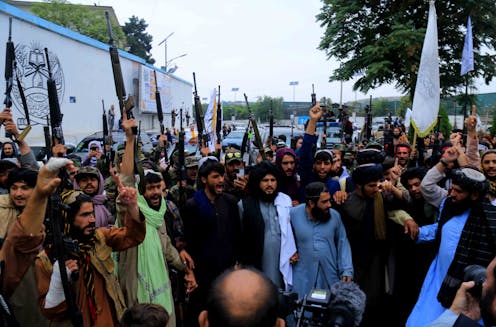One year into Taliban control, Afghans face poverty and repression. Australia cannot turn a blind eye
- Written by Greg Barton, Chair in Global Islamic Politics, Alfred Deakin Institute for Citizenship and Globalisation, Deakin University
 Taliban and their supporters gather near the building of the former US embassy as they celebrate the first anniversary of taking over the government in Kabul,EPA
Taliban and their supporters gather near the building of the former US embassy as they celebrate the first anniversary of taking over the government in Kabul,EPAOne year after the fall of Kabul, life is difficult and precarious for almost everyone in Afghanistan. More than half of the 40 million people of this troubled country are facing severe...













